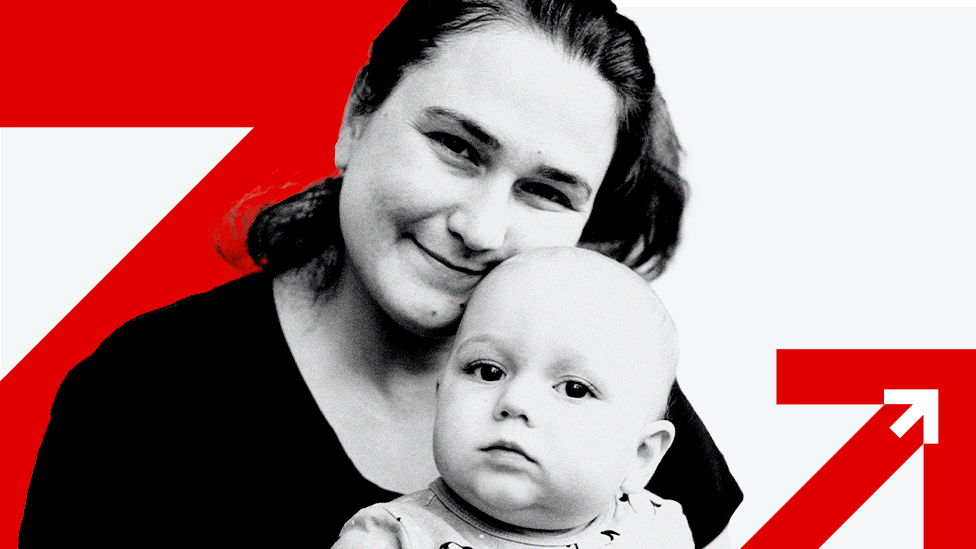Details of £400 energy payment to households revealed
- Published
- comments
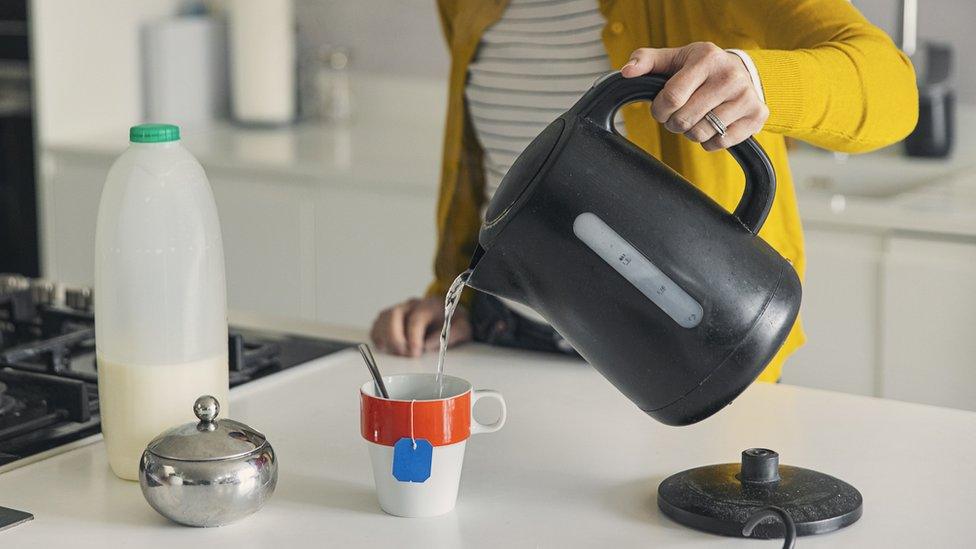
The government has announced how all households in England, Scotland and Wales will receive £400 to help with rising fuel bills this autumn.
The money, part of the Energy Bill Support Scheme, will be paid in six instalments.
Households will see a discount of £66 applied to their energy bills in October and November, and £67 a month from December to March 2023.
But how the money is received will depend on how you pay your bill.
How do I get the money?
All customers with a domestic electricity meter who pay by direct debit, either monthly or quarterly, or by card will see an automatic deduction off their bills.
Those with "smart" prepayment devices will see an automatic monthly top-up added to their account, meaning they will have to add less credit to their meter for the total energy they use.

How have you been affected by rising energy prices? Get in touch.
WhatsApp: +44 7756 165803, external
Tweet: @BBC_HaveYourSay, external
Please read our terms & conditions and privacy policy

But those with older "non-smart" prepayment devices will not get this money automatically.
Instead, they will receive an energy bill discount voucher in the first week of each month, via text, email or in the post. Customers will have to redeem these in person at their usual top-up point, such as a local Post Office.
"While no government can control global gas prices, we have a responsibility to step in where we can and this significant £400 discount on energy bills we're providing will go some way to help millions of families over the colder months," said Business Secretary Kwasi Kwarteng.
The energy price cap - the maximum amount suppliers can charge customers in England, Scotland and Wales - is expected to go up in October. In May, energy regulator Ofgem said the typical household should expect to see an £800 increase in October, to £2,800 a year.
However, one industry analyst, Cornwall Insight, has estimated that the typical domestic customer is likely to pay £3,244 a year from October, then £3,363 a year from January.
More than four million households use prepayment meters in Britain, according to Ofgem. Less than half of those meters - 1.9 million - are smart devices that will allow this payment to be made quickly and easily.
Charities are concerned that for the more than two million households with traditional non-smart prepayment devices - often the most vulnerable and poor in society - this energy help will be harder to access.
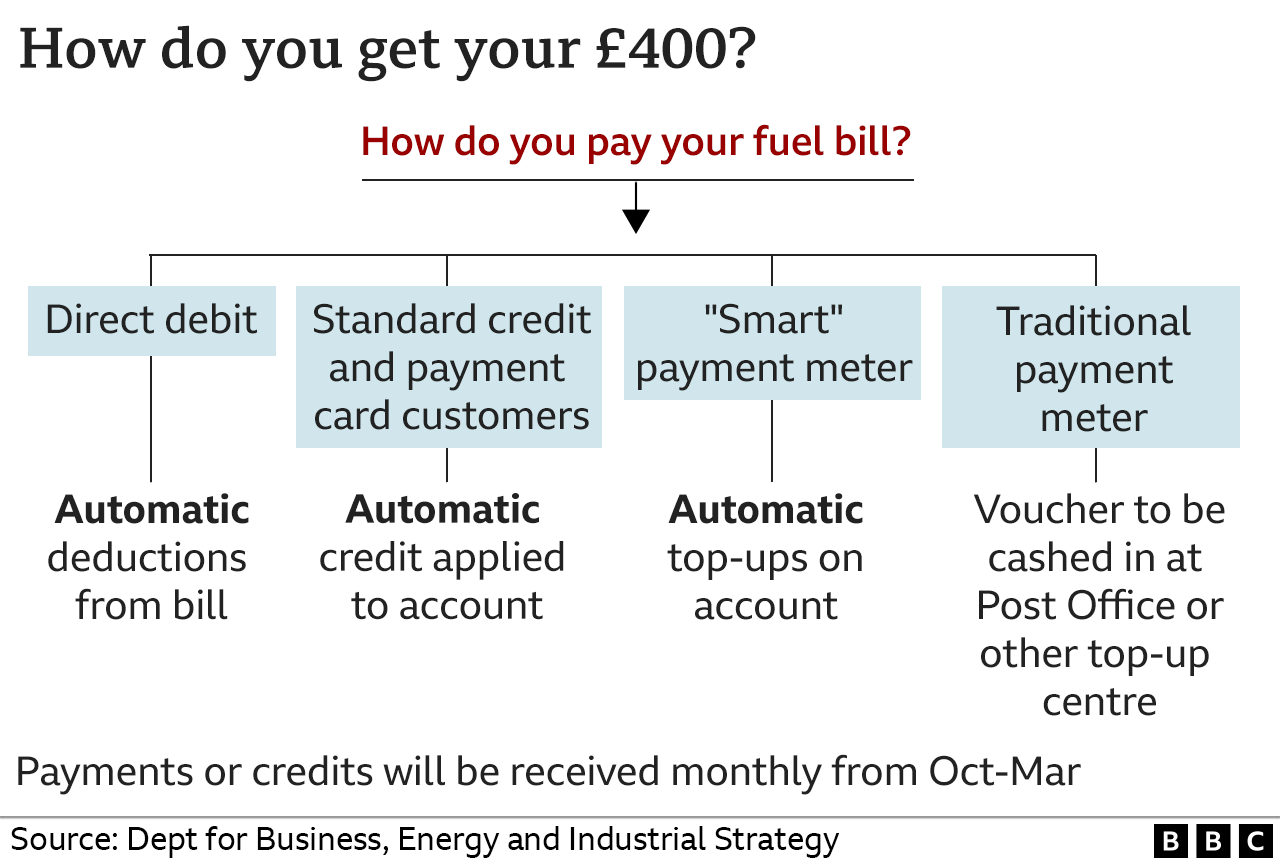

Why do people have prepayment meters?

Just over four million households pay for their gas and electricity before they use it, rather than paying monthly direct debits or getting quarterly bills for the energy they've used.
Sometimes that's because they have previously been in debt to their utility company, some may be social housing tenants, some may be in short-term rental properties, or be on a debt recovery scheme. Others may have just moved into a home with a pre-payment meter already installed, or have decided to get one put in to help them budget more easily.
Utility companies say it is more expensive to run prepayment systems as they need to process transactions more often, so the price-cap for prepayment customers is higher.
That means they are already paying the most for their energy, and are likely to be some of the most vulnerable. That's why charities have raised concerns that sending a voucher via text, email or letter means those who need it most may miss out.

'Additional support'
One person on a non-smart prepayment meter is Winston Carrington, a grandfather in his 70s, from Manchester.
Mr Carrington, who previously told the BBC he was growing vegetables in his garden to help ease the impact of the rising cost of living, said he was now spending £5 a day on energy.
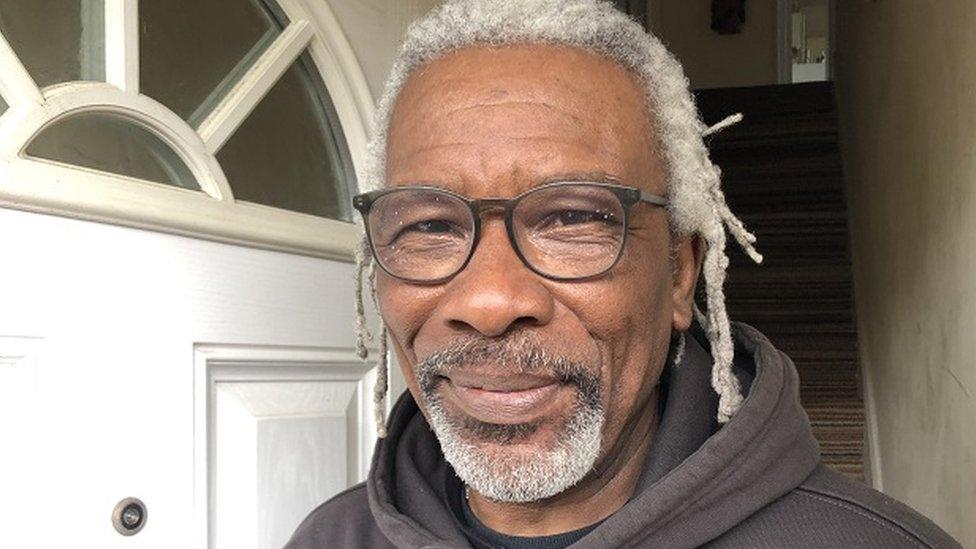
Winston Carrington is worried about covering his bills
"I'm paying four times the amount I was paying this time last year," he said.
"I don't know what I'm going to do… when it gets really cold. Food [price] has not even come into the equation."
The pensioner said he was already trying to save as much energy as possible by turning off "every single appliance" when he leaves his home.
Mr Carrington said he was "grateful" for the £400 energy bill discount but was concerned how he might receive his voucher, given the prevalence of scam text messages.
National Energy Action (NEA) is calling on the government to ensure households know support is coming.
"We don't want people to miss out on vouchers that could keep them warm in the coldest months of the year," said NEA's head of policy Matt Copeland.
"And additional support must be given to those households that will miss out on the £400, just because they don't pay an electricity bill directly."
Who gets the £400 energy payment?
The £400 payment will apply directly to households in England, Scotland and Wales.
The Treasury is still in discussion with Stormont ministers about how to make the payment to households in Northern Ireland.
All households are eligible for the full £400, regardless of income or size of house.
The payment is being handed to households with a domestic electricity connection as that applies to 99% of UK homes. There will be equivalent support of £400 for energy bills for the 1% of households who do not have a domestic electricity connection or a direct relationship with an energy supplier, such as park home residents.
"This is just one small part of a wider package of measures. The problem is that there are many people who are not on means-tested benefits or just above benefit level who are still really struggling with really high bills, so we thought this was the fairest and easiest way to distribute the money," said Lord Callanan, Minister for Business and Energy.
The government hopes all households will engage with the scheme and issued a reminder that no household will be asked for their bank details, to protect them against fraud.
But this will require a big push to ensure that those who need it the most do cash in their vouchers.
"If you do have a prepayment meter, look out for post from your supplier, it might contain hundreds of pounds worth of vouchers," advised Matt Copeland from the NEA.
"And if you know someone who has a prepayment meter, let them know it's coming this winter because it could be really important to help them stay warm."
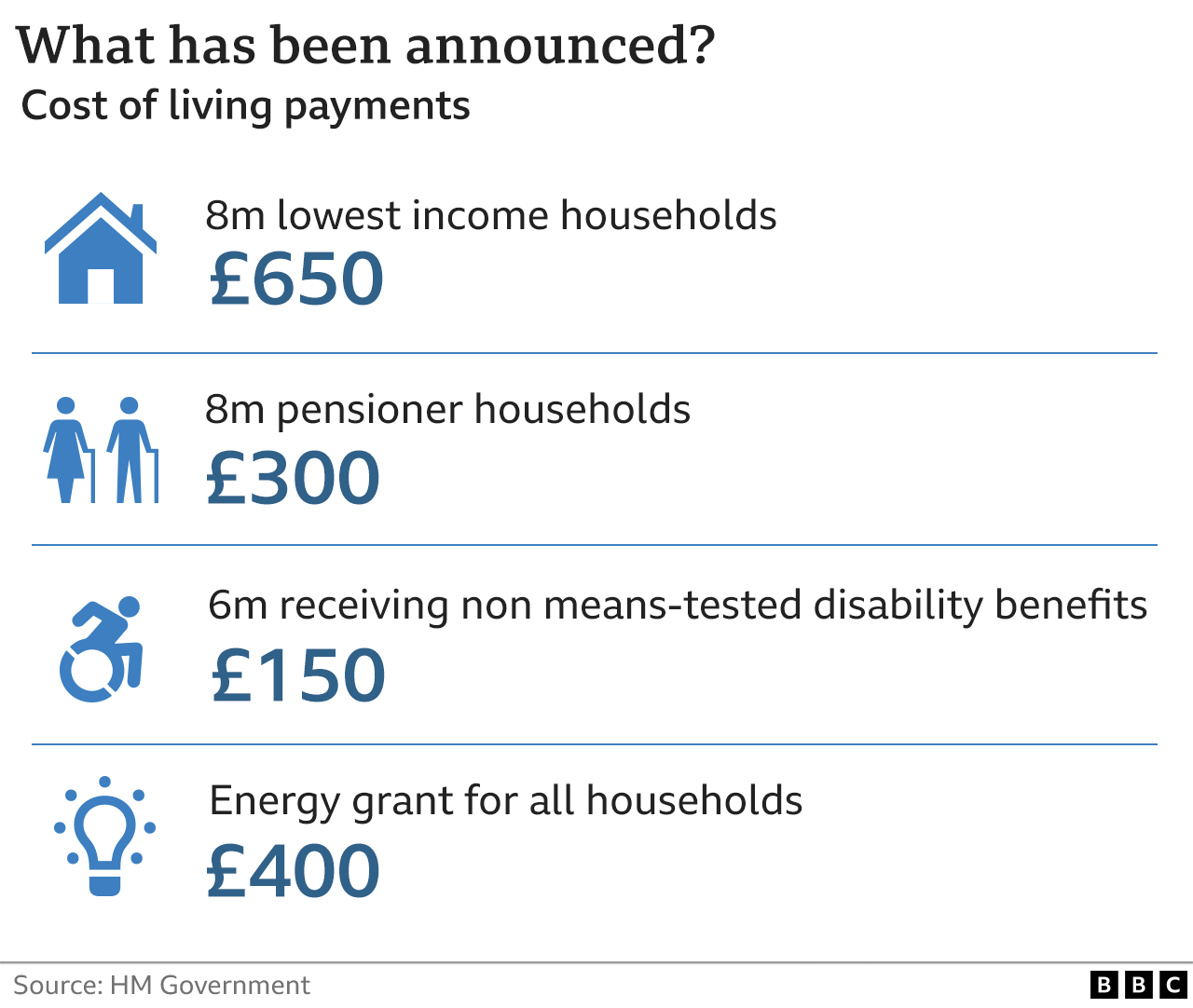
- Published21 December 2022
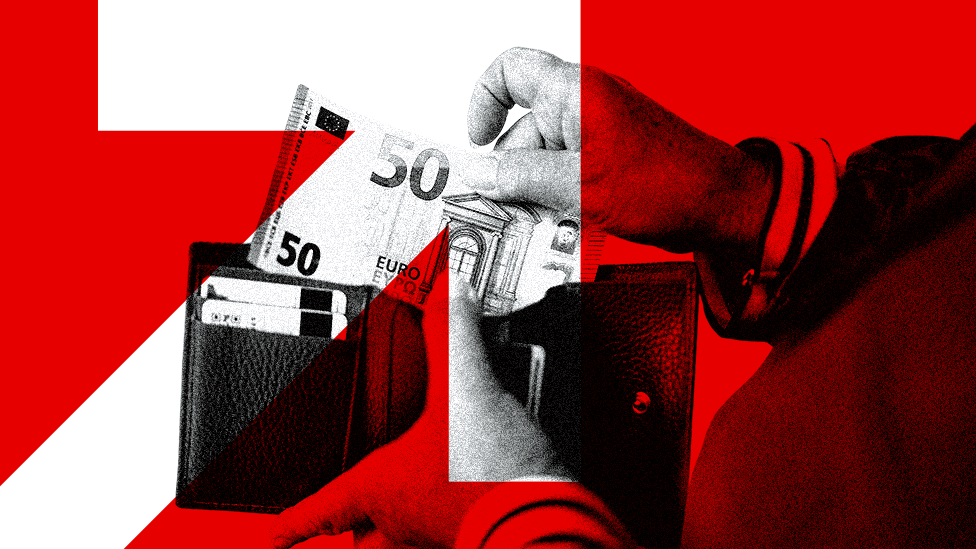
- Published15 February 2024
